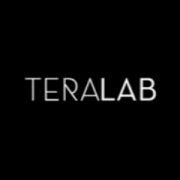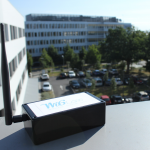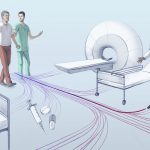Industry of the future: The German-French Academy launches seven new projects
Following a call for proposals launched by the German-French Academy for researchers at IMT and TUM (Technische Universität Munchen), seven projects were selected in October 2018. The projects focus on key topics for the German-French Academy for the Industry of the Future. A French-German platform for AI will soon be launched.
The selected projects focus on six topics: AI for the industry of the future, advanced manufacturing, advanced materials, supply chain and logistics, energy efficiency, and industrial design and processes. They will be funded by the German-French Academy for the Industry of the Future founded by IMT and TUM, for the initial seed stage.
For Christian Roux, Executive Vice President for Research and Innovation at IMT, “The German-French Academy is expanding its scope of exploration to provide solutions to strategic topics related to the industry of the future in order to support and accelerate the digital transformation of French and German industry.”

Alloy Design for Additive Manufacturing (ADAM)
This project focuses on additive manufacturing, in particular through laser melting (LBM, Laser Beam Melting). It aims to optimize the choice of the alloy composition used in this additive manufacturing process so as to limit defaults and optimize mechanical properties in the final product. This optimization will be based on processing large amounts of data collected by the research team at Mines Saint-Étienne, and on experimentation resources equipped with very high-speed cameras at TUM.
Additive Manufacturing for the Industry of the Future
This project aims to analyze the impact of the introduction of additive manufacturing in industry, focusing on three main areas. The first area involves industrial organization (supply chain, use of opensource materials, integration in new innovation ecosystems), the second concerns companies (new duties, new skills, new business models) and the final area focuses on organizational changes in the design process (new possibilities for design, mass customization, user-centered design etc.). The changes resulting directly from the introduction of additive manufacturing itself will also be studied.
Smart Artificial Intelligence based Modeling and Automation of Networked Systems (AI4Performance)
This project is intended to develop a smart approach for testing and evaluating networked systems (while collecting data at the same time). The process will be based on using innovative learning methods (Graph Neural Network) on data provided by partners Cisco and Airbus. This will involve analyzing the impact of changes (increase in the number of users, integration of new sub-systems, virtual machines etc.), detecting bottlenecks and analyzing the root cause as well as detecting malfunctions.
Data-driven Collaboration in Industrial Supply Chains (DISC)
Against the backdrop of digital transformation of industry, this project focuses on supply chain optimization through collaboration, especially in terms of incentives for information sharing. The approach will rely on methods derived from game theory to improve the decision-making process, which is increasingly decentralized as a result of digital transformation.
Modeling and decision-making platform for Reconfigurable, Digitalized Servitized Production systems (RDS-Production)
This research project aims to develop methods for designing reconfigurable production systems based on modeling interoperable components and software (using digital twins), AI techniques and operational research for decision-making support in reconfigurations, service life cycle approaches for production system equipment, and multi-criteria decision-making methods.
Smart Sensor Technology with Decentralized Processing Architecture
This project seeks to develop a new approach for taking sensors into account in systems such as automobiles or eHealth. The process will use smart sensors to distribute and process data starting from the sensor level, in different layers, so that through this multi-layer and adaptable system, storage and processing needs will be distributed in an optimized way to ensure security, reliability, robustness and scalability.
A French-German platform for AI
Joint Platform and Tools for Artificial Intelligence based on Data-Intensive Research and Data Governance.
TeraLab, IMT’s artificial intelligence platform, and TUM will work together to create a shared platform for AI. This will allow researchers at both institutes and their industrial partners to work in close collaboration through shared, secure access to data. The project also includes the possibility for researchers to showcase their research and results, with the development of tools that can test the algorithms and data sets used. This secure, neutral and trustworthy service will facilitate the reproducibility of results within a shared framework of good practices.
[divider style=”normal” top=”20″ bottom=”20″]
For five years IMT has been developing Teralab, an AI platform aimed at accelerating research and innovation, giving researchers, innovative companies and industrial players the opportunity to work together in a secure, sovereign, neutral environment using real data.
A true success story of the Investissements d’avenir (Future Investments) program, TeraLab is now involved in 60 industrial projects and is a key player in three H2020 projects on industry (MIDIH, BOOST 4.0, AI4EU). It has been awarded the “Silver i-Space” label at the European level for three years.
[divider style=”normal” top=”20″ bottom=”20″]
Browse all articles on the German-French Academy for the Industry of the Future






Leave a Reply
Want to join the discussion?Feel free to contribute!